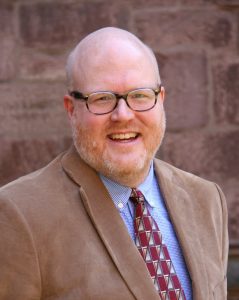
Kent Anderson is President of Northwest Baptist Seminary (NBS). In 2014, NBS’ CBTE-based program Immerse became the first such program to be accredited with ATS and in 2017 became the first CBTE program to produce M.Div Graduates. Immerse is co-owned by NBS partner churches (the Fellowship of Evangelical Baptists in British Columbia) and has spawned various iterations with other networks and churches all under the auspices of NBS.
What led to the need to start Immerse?
We needed to do a better job for our churches quite simply. We weren’t satisfied with the rate or quality of what we were achieving for our churches in terms of leadership development. We began to ask ourselves, “If we were to reverse engineer the process and work more closely with our churches could we do a better job and see a better result?” And we did!
What have been the challenges of getting Immerse started?
Well, there were no models! We had to figure it out and I think we did a pretty good job. By the time we were done and looked back, we were able to see that a lot of intuitive decisions we had made early on had been the right ones. The competency-based model was emerging in the university world in general, and we discovered that we were very well aligned with what is going on in the world of education.
In terms of ongoing challenges, our program rises and falls on the quality of the mentors. Making sure that mentors are well prepared and understand the vision is crucial and an ongoing focus. Obviously making the paradigm shift for faculty is a big challenge. Helping people who are deeply invested in conventional education to see how their personal missions will be fulfilled through a different paradigm is pretty challenging. It can be done, and it is amazing. But it’s not immediately evident to people who have built their life around a particular approach. To lead them past that to something different is challenging.
What is your advice in terms of helping faculty to make that shift?
Again, helping them see how their personal mission and calling can be fulfilled through this other form is a huge step. Over time, the faculty have come to truly enjoy this method of working with students because there is a greater relational quality. It is quite attractive once you get used to it. As well, it was incredibly helpful to us that all of our faculty are deeply committed to our churches. They were motivated in knowing that not only was this what our churches desired, but that it would have an improved impact on the product for our churches.
What benefit does CBTE give the seminary as opposed to traditional programs?
Oftentimes, schools have thought of their product as being educational content. The consumers of this content – students – form the customer base of the school. I think this model is actually problematic. In our model, we like to think of the customer as being the church or ministry that will employ the graduate. Our graduates, our students, are the product. We desire to be particularly good at producing students who can lead our churches. We work really hard to understand the type of leaders churches need and then help them develop that leader.
When you think of it that way, this model is very productive. Mission fulfillment is accelerated and improved. This resonates with our churches and our people, and hence we have seen a tremendous response from donors – much higher than we have experienced in the past.
Why do you think that is?
This just makes sense to people. A lot of our donors are in our churches and receiving the benefit of our students training. When they can participate in the development of these people, and see the results directly in their churches and in their own lives, it is very attractive. I’m finding that people respond very naturally to this idea of supporting an innovation that trains people toward mastery in context through mentors. It just makes sense to people.


 The age of educational institutions having a monopoly on knowledge is quickly ending. Today, videos, lectures and other resources from world-class subject matter experts and communicators are available for free at the click of a button. No matter what subject you are looking for and no matter what depth you are looking to engage it in, you can find the resources you need online. In essence, a motivated learner can access content whenever they want from wherever they have an internet connection. No expensive tuition required.
The age of educational institutions having a monopoly on knowledge is quickly ending. Today, videos, lectures and other resources from world-class subject matter experts and communicators are available for free at the click of a button. No matter what subject you are looking for and no matter what depth you are looking to engage it in, you can find the resources you need online. In essence, a motivated learner can access content whenever they want from wherever they have an internet connection. No expensive tuition required.